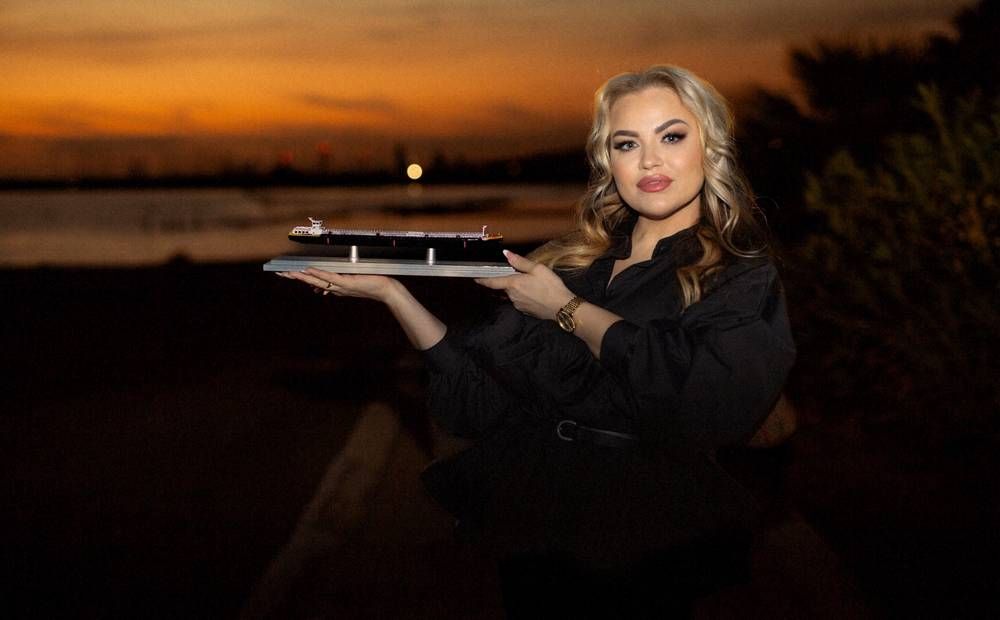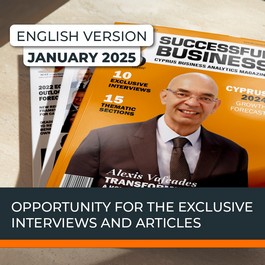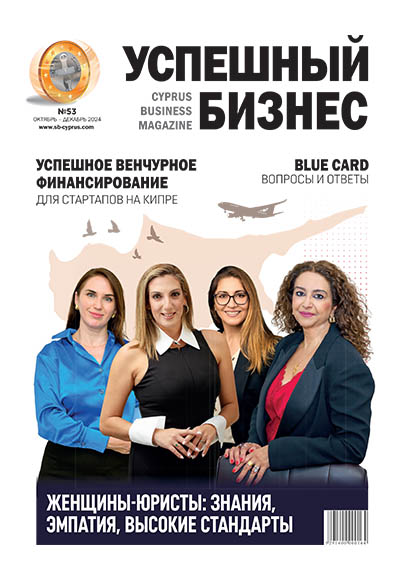Step aboard for an exclusive voyage into the maritime world as we delve deep into the insights and strategies of Olesea Ceaicovschi, Partner and CEO of Rome Maritime Ltd and Sea Lux Ltd. In this interview, we'll explore her journey, the challenges she has conquered, and the secrets behind success in the dynamic maritime market. From technological trends to the importance of quality care, join us as we navigate the waters of Olesea Ceaicovschi's visionary leadership and future aspirations.
Since RoMe Maritime’s incorporation, how has the company evolved in the maritime industry, and what have your key milestones been?
RoMe Maritime was incorporated in 2011. Since then, we've expanded a lot. We take great pride in our role as an inland crew manager for the biggest maritime company in the World, Stolt-Nielsen.
Though the company started as a small enterprise, we have now grown our operations significantly. We specialise in fixed crew management for vessels and collaborate with subcontractors and crews, who utilize us as an agency, forming agreements with clients. We work inland, providing bunkering, river barges, and business shipping. We also transport various types of chemicals. This sector demands the highest level of responsibility and the most qualified people.
Besides our core activities, we also engage in ship management for certain companies and projects. We have even worked with seasonal cruise vessels operating in Western Europe.
Can you elaborate on RoMe Maritime's approach to strategic ship relocations and how you've maintained a strong track record in this area?
It’s essential to clarify that we are not ship owners, and do not choose the vessels’ routes. We provide licensed, specialized crews who follow the ship-owning companies’ instructions. Therefore, I cannot elaborate on this subject because we never take decisions on changing the ships’ positions, unless it is necessary due to bad weather or other issues.
RoMe Maritime is known for supplying maritime specialists for various shipping sectors. How do you ensure the quality and expertise of the personnel you provide?
First of all, it's a well-known fact that our field operates using a man-to-man approach. All the specialists we recruit are required to pass a lot of exams and go through a series of very serious steps in order to get their licenses and certificates.
We mostly specialize in chemical tankers, a niche within the maritime industry. To ensure quality and expertise, we first check all the documentation and qualifications of any person we employ, whether on a full-time, part-time or subcontractor basis. We execute an absolutely thorough examination of each document. If something looks suspicious, we double check that. So far our clients are happy, and we have a positive reputation in the market. For us, quality is more important than quantity.
Tell us about your wider approach to HR.
Our HR team is very professional and deeply specialized in the maritime field, boasting hands-on experience working on ships. As a result, they can very easily select qualified personnel to match the precise needs of our clients.
For example, my husband started his career as a captain and worked in that role for many years. Just before he met me, he decided to open this company. We are business partners, as I joined this venture of his many years ago. When you are given a chance, you have to develop and prove yourself.
We cooperate with a big variety of ship owning companies, and our personnel office takes care of lots of aspects. It's not only HR; they handle crew planning, assignments, durations, required licenses and many other matters.
We often see that office workers in this industry have no idea what they are talking about. They are absolutely detached from the reality of what is going on, on the ships. That's why we decided to choose HR personnel who specialize in this field, not only theoretically, but practically. Because the best school is the school of life.
As a provider of staffing solutions, what challenges do you face in different regions, and how do you overcome them?
The biggest challenge is facing different issues in every country, by every legal system. Thankfully within the EU countries there are similarities in the legislation now.
Another challenge is the lack of captains. I mean good, experienced, responsible captains. Many of them can obtain the license, but don't have the necessary experience. The fees they’re asking for now can reach up to €800 per day for Super Captains. To find a highly skilled, qualified captain with a reasonable fee: that’s a huge challenge. So, to find a good, qualified and very well experienced captain with reasonable money: that's a huge challenge.
Our company’s strategy is to pay all our people pretty quickly, before being paid by our ship owners and clients. It's extremely rare to find companies like us, which pay upfront. Why? Because we provide services. We invoice our clients, we wait for the payment, and the payment can come up to two weeks later.
However, if you fail to pay your team on time, it is unlikely that they will choose to work with you again. And that's one of our secrets. This way we earn the trust of our employees and clients. We have a lot of clients coming to us because they know that we treat our employees with respect, and that they are very well experienced and reliable.
Being based in Cyprus, how does this location advantageously impact your business operations, particularly in terms of tax regulations and global reach?
The initial decision to establish the company here was because of the low VAT rates. The taxes in Cyprus still remain low when compared to the majority of EU countries. The taxes in Cyprus still remain low when compared to the majority of EU countries. We had a company in Poland and in Germany at that time. Later, we opened in Switzerland, Holland and Luxembourg.
Can you elaborate on the strategies your company has implemented to maintain strong relationships with both clients and employees, especially in light of challenges like the COVID-19 pandemic?
First of all, you must always care about your people and your clientele. COVID was a very big lesson. Obviously, we needed to follow employment trends and guidance, so we transitioned to working remotely.
Regarding our clients, to encourage repeat purchases and foster a sense of belonging and appreciation, we try to offer discounts and favors to those who pay on time. We can wait sometimes when they are delayed, but it's very rare for such good clients to delay. We can track this using our database and software.
For our staff we offer webinars and interactive sessions. We provide our customers with online platforms to showcase our sustainability efforts and make them feel safe and in good hands.
Looking forward to 2024, what are the key trends and changes you anticipate in the maritime industry?
Obviously, the main trends now is electronic monitoring, robotic systems. Unfortunately, human beings are often replaced now, as much as that is possible, with all kind of robots. You see this now on the new ships. You'd be just amazed by the systems they have on the bridge. If before you would need several people on the bridge, now you need one. Of course, that one person would have contact with the rest of the staff, outside on the deck. He has hundreds of buttons and a phone to connect with the base, shore, port, etc. Everything is so electronic nowadays.
How does RoMe Maritime plan to adapt its services and operations in response to the evolving maritime market?
In every business, as humans, we adapt to anything. We adapt to the new future. I would say that our services and operations will not change so much. Obviously, every year we improve, comparing to the previous year. We try to analyze where we were strong, where, maybe, we were not strong enough, comparing to other competitors in the market.
One important characteristic of our company is that we focus on quality. The quantity is not so important. Of course, you can't work with two clients and pay all your people, but quality is above all. When you provide great quality care and support to your clients and employees, the feedback is just amazing. As I always say: care about your people and the great results will reward you. Automatically your clientele database will grow. The quality of your clientele will improve. With time you will have the opportunity to choose your clients due to this increased demand.
As a leader in the maritime sector, what is your long-term vision for RoMe Maritime, and how do you plan to achieve it?
I like speaking about my vision for the future. It's very important for a leader to have the following: I would place first adaptability and flexibility, then effective communication skills, collaborative decision-making. Then resilience and emotional intelligence, and finally proactive risk-management.
Leadership in the inland maritime industry is constantly tested by crises and bad times. You go through challenging situations, but still must give your best efforts to your staff or your clientele. You must always prove and show that you care.
From adaptability and effective communication to collaborative decision-making, resilience and proactive risk-management - these lessons can shape the leadership approach of professionals in the industry. By embracing these lessons, leaders in the island maritime industry can better prepare themselves, and perhaps their organizations, to face future situations and develop.
I always say: be a leader, don't be a boss. Don't push your people against the wall, but help them grow, and the rewards will just come your way. Just focus on quality above quantity and care.






